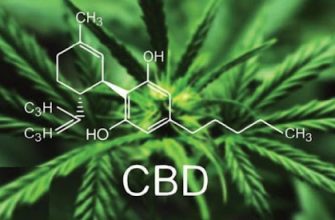Inflammatory Bowel Disease – IBD
Diseases caused by inflammatory lesions of the intestinal walls, leading to chronic disease of the intestine, and sometimes other organs involved in the disease. The two major diseases that fall under the definition of inflammatory bowel disease are Crohn’s disease – CD. And ulcerative colitis. Ulcerative colitis – UC. Inflammatory bowel disease is associated with a number of inherited syndromes and autoimmune diseases. There are several explanations or hypotheses as to why some people develop the disease. Apparently, in people genetically predisposed to the development of the disease, there is an inappropriate control mechanism in the intestines.
This defective mechanism probably creates a chronic condition in which the intestinal mucosa itself (the lining of all the inner walls of the intestine) does not function properly at the immune level, i.e. immune function is not optimal. Responsibility for the disease. About one third of these inherited risk factors are associated with both Crohn’s disease and ulcerative colitis, which explains some of the similarities between the two diseases.
It has also been found that some of these genetic risk factors are also involved in processes associated with other autoimmune diseases such as type 1 diabetes, lupus, psoriasis, asthma, and others. The genetic defects found in inflammatory bowel disease are associated with a number of different processes:
Impaired ability of the immune system to respond and destroy bacteria, impaired control function of secretory cells involved in the reaction with the metabolic products of bacteria, as well as defects found in the process associated with the development of inflammation and its resolution. For example, under normal circumstances, the intestines exhibit oral tolerance to food and antigens in food, otherwise any antigen will lead to the development of an inflammatory process.
It was found that in patients with inflammatory bowel disease, the mechanism of tolerance described above is impaired, resulting in a lack of control over the intensity of inflammation.… This is when, in addition, the involvement is evident, which also includes acute reactions to intestinal bacteria.Patients with Crohn’s disease and ulcerative colitis have been found to have antibodies against a variety of bacteria, including E. coli, antipalliative, and others. The development of the inflammatory response is associated with many processes.
One of the first of these is the activity of leukocytes of the CD4 + T type (helper cells), which lead to an increased secretion of inflammatory cytokines, which, in turn, act on other inflammatory cells, and so on. The inflammatory process is mediated by interleukins such as IL-1, IL-6 and TNF, which lead to the production of other inflammatory mediators and the blocking of which by certain drugs is one of the ways to fight the disease.
In addition to a defective immune mechanism, there are hypotheses related to the involvement of various bacteria, which can lead to the onset of the inflammatory process. For example, it has been found that anaerobic bacteria and a number of aerobic strains can lead to inflammation, and it has also been found that mental stress can worsen disease.
Ulcerative colitis – UC
Ulcerative colitis (ulcerative colitis) is a chronic inflammatory disease of the colon. The disease is characterized by superficial ulcers on the inner wall of the colon that can appear in specific areas of the intestine from the rectal region (a disease localized in the rectum called proctitis) to the beginning of the colon in the sacrum region. , or throughout the colon (pancolitis). Symptoms are usually bloody diarrhea, abdominal pain, decreased appetite, and mucus production. In addition, nausea or vomiting, fever, and anemia may occur.
CBD and Stomach Ulcer Treatment:
There are several studies on this topic.
Crohn’s disease {cd}}
Crohn’s disease is a chronic inflammatory disease of the gastrointestinal tract. The disease can flare up in any part of the digestive system from the mouth to the anus, but in most cases the disease occurs in the intestines, especially in the small intestine. The disease is characterized by recurrent infections, intestinal infections, burns of the urinary tract and the formation of intestinal obstructions and ulcers, which can develop and reach the intestinal wall and form fistulas (holes that form between the affected intestinal wall and organs and tissues in the abdominal cavity.).
In an Israeli study recently summarized by Professor Timna Naftali, head of the gastrointestinal department at Meir Hospital in Kfar Saba, cannabis oil at a concentration of 15% CBD and 4% THC was given to 46 chronic patients with Crohn’s disease. In this study, the control group was given a placebo. The CBD group saw an improvement in quality of life scores and relief of disease symptoms in the same group compared to a control group. The study was conducted for only 8 weeks, and this may be the reason for the lack of effect on gastrointestinal infections (remission).
Nausea and vomiting
Nausea is not defined as a disease, but rather as an unfocused and specific symptom. It can be caused by car travel or sailing, migraines, food, pregnancy, stress, or a number of other factors.
CBD as an antidote for nausea and vomiting
Part of the function of the endocannabinoid system in the body is to regulate and control the sensations that lead to nausea and vomiting. When this system is augmented by an “external” cannabinoid like CBD, the body is given the opportunity to successfully deal with these feelings. The calming effect of CBD on anxiety increases its effectiveness in preventing recurrent nausea. In cases conducted in rats, CBD has been found to suppress various types of nausea. THC is also effective in preventing nausea and vomiting.
Irritable Bowel Syndrome – IBS
A syndrome that includes chronic abdominal pain, discomfort and a feeling of fullness in the digestive system, and changes in bowel habits. It is a functional syndrome, which means that this syndrome currently has no organic explanation (there are no signs of inflammatory bowel disease or other explanations that can be confirmed by various tests). Changes in bowel habits may include diarrhea or constipation. Although there is currently no cure that can cure people with this syndrome, there are a number of treatments available to reduce symptoms. These treatments include dietary changes, medication, and psychological intervention.
Some diseases can manifest as irritable bowel syndrome, and they should be excluded: diseases such as celiac disease, fructose intolerance, infections, including parasitic infection (giardiasis), various inflammatory bowel diseases, etc. In contrast to these diseases, the main reason for the existence of the syndrome unknown. There are several theories
The main one is the problem of interaction between the brain and the digestive system.
The lexicographer Reuven Alkalaj coined the name “irritability” and the adjective “irritable” in his dictionary.
There are countless anecdotal testimonies and reports of people experiencing CBD for irritable bowel syndrome on the internet.
Role of the endocannabinoid system in the brain-intestinal axis









